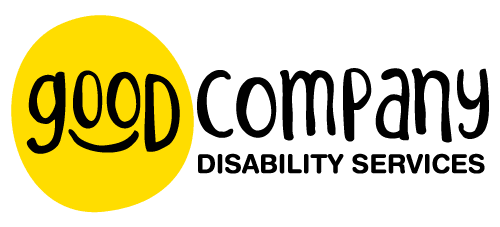Child Safe Policy
Good Company Disability Services Pty Ltd
Effective Date: 29 May 2025
Review Date: 29 May 2026
Contact: he***@***************om.au
Purpose
This policy outlines how Good Company Disability Services protects the rights, safety, and wellbeing of children and young people who access our supports. We are committed to being a child safe organisation where children are safe, respected, heard, and able to thrive.
Scope
This policy applies to:
All staff, contractors, volunteers, and students
Children and young people under 18 years of age receiving supports
Parents, carers, guardians, and advocates
All locations and formats of service delivery (in-home, community, online)
Definitions
| Term | Definition |
|---|---|
| Child/Children | A person under 18 years of age. |
| Child Safe Organisation | An organisation that creates conditions to reduce the likelihood of harm to children, increases their confidence to speak up, and responds effectively to concerns. |
| Mandatory Reporting | Legal requirement to report suspected abuse or neglect to relevant child protection authorities. |
| Abuse | Includes physical, emotional, psychological, sexual abuse, neglect, and exposure to family violence. |
Commitment to Child Safety
Good Company:
Has zero tolerance for child abuse, harm, or exploitation
Prioritises the safety and rights of all children
Recognises that children with disability face heightened risk
Promotes the participation and voice of children in all decisions affecting them
Ensures early intervention, swift response, and continuous improvement
Legal and Regulatory Framework
This policy is informed by:
Children, Youth and Families Act 2005 (VIC)
Children and Community Services Act 2004 (WA)
NDIS (Quality Indicators) Guidelines 2018
National Principles for Child Safe Organisations
UN Convention on the Rights of the Child (CRC)
NDIS Code of Conduct
Privacy Act 1988 (Cth)
Empowering Children and Families
We:
Welcome children’s feedback and involve them in support planning
Provide clear information in child-friendly formats where requested
Support family members or guardians to speak up
Encourage safe relationships and protective behaviours education
Offer Easy Read and culturally adapted materials for all children where requested
Child Safe Culture and Staffing
Recruitment and Screening
All staff working with children must hold:
A valid Working With Children Check (WWCC) or equivalent
An NDIS Worker Screening Check or a National Police Check
Staff Code of Conduct
Staff must:
Maintain professional boundaries
Avoid all forms of grooming, isolation, or favouritism
Never use physical punishment or emotionally abusive language
Training
All staff complete Child Safety Induction Training, including;
Identifying signs of abuse
Responding to disclosures
Understanding legal obligations for reporting
Supporting children with disability to communicate safely
Identifying and Responding to Risk
We actively monitor:
Physical and emotional indicators of harm
Environmental safety in homes, transport, and community settings
Online safety and communications between staff and children
If any staff suspect a child is at risk:
They must report immediately to a Manager or Director
The concern will be documented and reported to relevant authorities in line with mandatory reporting laws
The child’s support team will be informed to ensure safety, wellbeing, and advocacy
Reporting and Incident Management
Child safety concerns are reported via the internal Incident Management System
Serious or reportable incidents are escalated to:
Child protection services in the relevant state
The NDIS Quality and Safeguards Commission (if applicable)
Families and guardians are informed (unless this would place the child at greater risk)
Complaints and Feedback
Children and families can raise concerns:
In person
By phone or email
With the help of an advocate or interpreter
We take all concerns seriously and respond in a timely, transparent, and child-sensitive manner.
Monitoring and Continuous Improvement
We review child safety practices regularly through:
Incident trends and feedback reports
Staff training participation rates
Annual internal audits of compliance
Participant satisfaction data from children and families
Improvements are incorporated into service delivery and staff development.
Related Policies and Resources
Safeguarding & Risk Management Policy
Incident Management Policy
Complaints and Feedback Policy
Participant Rights and Advocacy Policy
Staff Code of Conduct
NDIS Code of Conduct
National Principles for Child Safe Organisations (Australian Human Rights Commission)
Review
This policy is reviewed:
Annually
After any serious child safety incident
If there are updates to child protection laws or NDIS regulations
Alignment with the National Principles for Child Safe Organisations
Good Company aligns its practices with the 10 National Principles for Child Safe Organisations, as outlined below:
| National Principle | Good Company Application |
|---|---|
| 1. Leadership, governance and culture | Child safety is embedded in governance and supported by leadership, policy, and reporting. |
| 2. Child voice | Children are actively involved in support planning and encouraged to express concerns. |
| 3. Family involvement | Families are informed and involved in decision-making. Feedback is welcomed and acted on. |
| 4. Equity and inclusion | Practices are tailored for children with disability, Aboriginal and CALD backgrounds, and LGBTIQA+ children. |
| 5. Staff screening and supervision | All child-facing staff are screened, trained, and supervised to support child safety. |
| 6. Child-focused complaints processes | Complaints can be raised in multiple formats with support, and are handled respectfully. |
| 7. Training and education | Mandatory training covers recognising abuse, reporting, and child-centred communication. |
| 8. Safe environments | Services are delivered in physically and emotionally safe spaces, including online. |
| 9. Continuous improvement | Feedback and incident data inform regular review of child safety practices. |
| 10. Clear documentation | This policy and supporting procedures are clearly written, accessible, and regularly reviewed. |
Every child supported by Good Company has the right to feel safe, respected, and supported.
We are committed to creating an environment where children with disability can thrive — with trust, dignity, and care.

